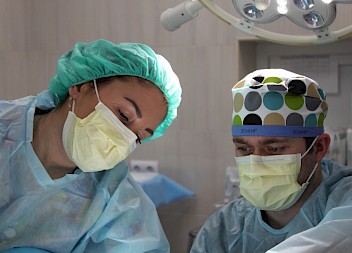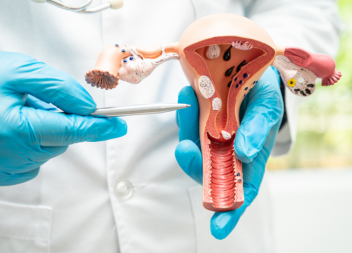We welcome the news that the Department of Health has committed to resetting the dial on gender disparities in healthcare with the first Women’s Health Strategy.
This ten-year plan will see mandatory training for all new doctors, one-stop health hubs opened for gynaecological conditions, better data to understand the gender gap, and development of women’s health information on the NHS website.
The Strategy has been developed after consultation with patients in a Let’s Talk about it survey.
Results of the ‘Women’s Health – Let’s talk about it’ survey
Over 80 percent of the 110,000 people who responded to the evidence survey felt that their voices weren’t listened to. This is an alarming but unsurprising statistic. Women’s voices and experiences need representing in policy making. There also needs to be better leadership and accountability where decisions are made from national to local level. Adopting a personalised approach to care will ensure women are fully informed about the care they can expect.
Only then can the NHS accurately provide care that no longer fails women.
Specific areas covered in the Women’s Health Strategy
- Menstrual health
- Fertility, pregnancy, baby loss, and postnatal support
- Menopause
- Mental health and wellbeing
- Cancers
- Violence against women and girls
- Healthy ageing and long-term conditions
Gynaecological health: Time to stop normalising the abnormal
Women account for over half of the population. Yet systemic failures to put women and girls at the heart of healthcare has meant that the NHS is not designed to meet women’s health needs.
For far too long, women’s healthcare has normalised the abnormal. Women have had their health complaints ignored, are forced to endure years of pain and discomfort, and wait too long for diagnosis.
Gender-blind medicine and a lack of knowledge around female-only conditions have led to generational decline of health outcomes. As specialist medical negligence solicitors, we see too often the consequences that this long history of gender bias has had on women.
We are repeatedly told by clients who come to us for gynaecological medical negligence claims that they have had their symptoms dismissed, ignored or misdiagnosed for years. They’re told it’s just normal and to get on with life.
But painful periods aren’t normal. Having the IUD contraceptive coil fitted without pain relief shouldn’t be the only option. Bleeding in between periods or after the menopause isn’t normal. Fighting for a diagnosis of endometriosis shouldn’t be acceptable. Babies shouldn’t be harmed because their mothers weren’t given timely medical intervention during childbirth. You shouldn’t have to jump through hoops to be prescribed HRT to ease menopause symptoms.
The reproductive system is a complex piece of biology and needs highly specialised medical care. Unfortunately, those in training, as well as at times more experienced surgeons, do make mistakes and cause injuries to women, with devastating consequences.
The Women’s Health Strategy Six-point plan
The plan includes the following key objectives:
- Ensure voices are heard
- Improve access to services
- Address disparities in outcomes
- Better information and education
- Greater understanding of women’s health in the workplace
- More research for better data
How will the government fulfil the objectives of the Women’s Health Strategy?
The main focus is to move away from the disease-orientated approach to healthcare, whereby a patient receives interventions for a single condition at a single stage of their life. Instead, there will be a life course approach. This means critical stages of a woman’s life will be identified, with suitable healthcare provided while they transition from one stage to the next.
For example, healthcare options will differ in puberty, middle years and later stages of a woman’s life. Some services will be continued throughout all life stages, such as gynaecological conditions and sexual health. But others will be age dependent, such as HPV vaccinations, menstrual health, pregnancy and fertility support, and menopause.
The strategy suggests concerns will be taken seriously at every stage – whether that’s an initial discussion, during treatment, or at follow-up care. Better consideration of the needs of women is a critical step towards improving health outcomes for women and girls.
Department of Health's achievements in women's healthcare so far:
- Set out an approach to reduce wait times and improve experience across all specialty areas such as gynaecology and urogynaecology.
- Established a maternity disparities task force.
- Invested £127m to maternity workforce to increase neonatal care capacity, along with £95m recruiting 1,200 new midwives and 100 OBGYN consultants.
- Established UK menopause taskforce to increase support and awareness.
- Reduced costs of HRT with a new prepayment certificate set to come into effect in 2023.
- Banned virginity testing and hymenoplasty.
- Enhanced reproductive wellbeing in the workplace to ensure women can remain or return to work.
- Banned Botox and dermal fillers in under 18s.
- Abolished tampon tax.










